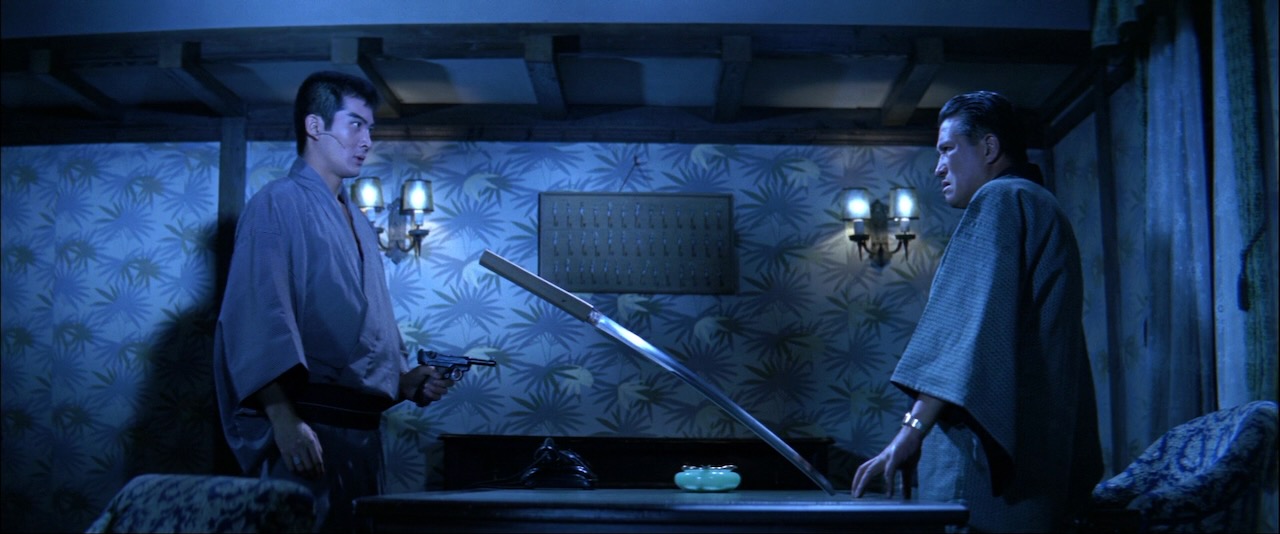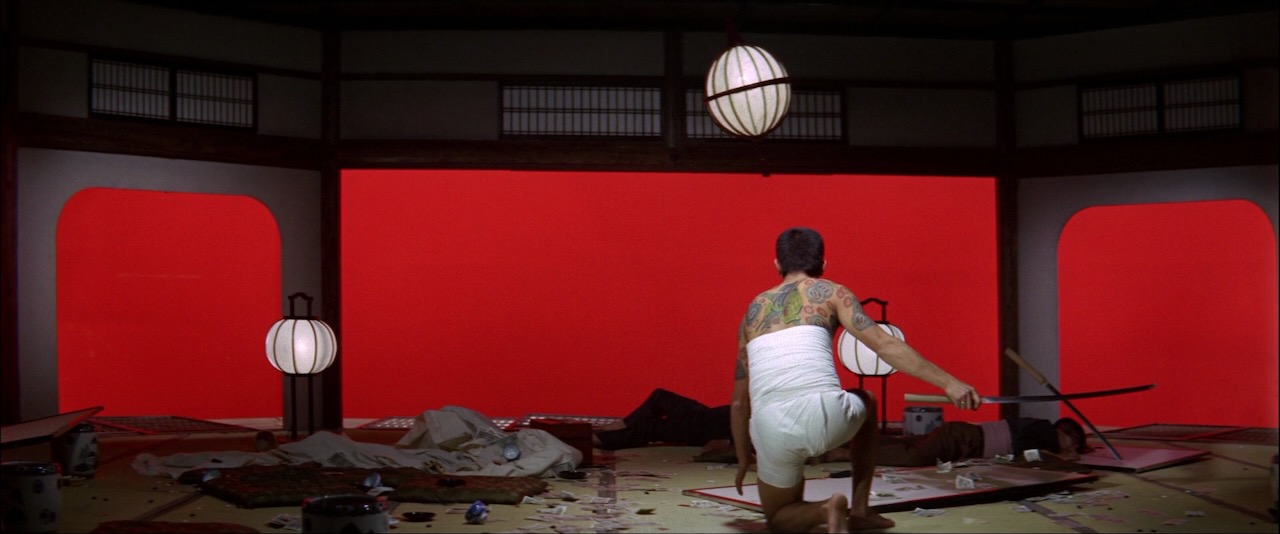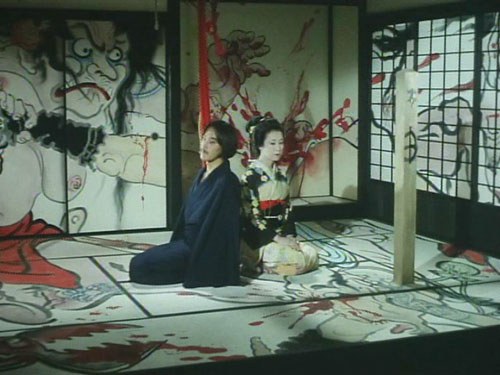Black Book (2006, Paul Verhoeven)
Nice, twisty little nazi suspense drama. Watched on the plane, a little drowsy, so IMDB will help remember the plot details: “When the hiding place of the beautiful Jewish singer Rachel Steinn is destroyed by a stray bomb, she decides with a group of other Jews to cross the Biesbosch to the already liberated south of the Netherlands. However, their boat is intercepted by a German patrol and all the refugees are massacred. Only Rachel survives. She joins the resistance, and under the alias Ellis de Vries manages to get friendly with the German SS officer Müntze. He is very taken with her and offers her a job. Meanwhile, the resistance devise a plan to free a group of imprisoned resistance fighters with Ellis’ help. The plan is betrayed and fails miserably. Both the Resistance and the Germans blame her. She goes into hiding once more, with Müntze in tow. Together they wait for the war to end. Liberation does not bring Ellis freedom; not even when she manages to expose the real traitor. ‘Every survivor is guilty in some way.'” Edit April ’07: saw again in theaters – a real interesting movie. I definitely like it, glad Verhoeven is directing his talents away from stuff like The Hollow Man these days. Awesome final shot, with Rachel living in Israel, having moved from one besieged state to another. I don’t think Jimmy or George liked it much.
Jackass Number Two (2006, Jeff Tremaine)
Watched in the plane right after Black Book, when everyone around us was going to sleep. KLM didn’t censor it as far as I know. Completely awesome, hilarious movie. A masterpiece in its own way. Katy says I laughed too much/loud and annoyed my fellow passengers. Most other people watched that Kevin Costner movie with Ashton Kutcher for some reason.
Badlands (1973, Terrence Malick)
After a few days at the World Social Forum, finally one evening Katy and I were both awake enough to sit through a movie. I suggested Badlands, which we both ended up enjoying. Sheen kills Spacek’s father (Warren Oates) and they go on a little shooting spree before getting captured. Another quiet and beautiful movie by Terrence Malick. EDIT: JUNE 2007: after reading a great Adrian Martin article in Rouge, I realized that Malick is the only director I’ve seen whose EVERY film I would consider great… Charles Laughton excepted.
My Migrant Soul (2004, Yasmine Kabir)
On the last day at the Forum, I found the movie tent. Watched this half hour doc about a guy from Bangladesh who got a job in Malaysia in order to send money home to his family. But the guy who sends him gives him a forged passport, and he gets hard work for short periods of time, then sits idle the rest of his weeks, unable to find other work or complain to anyone without a legitimate ID, finally gets sick and dies. Sad.
Words on Water (2003, Sanjay Kak)
They’re building dams in India that destroy small towns, I guess. I fell asleep in the first ten minutes, then left the movie to wander the Forum and listen to the drumming, so I can’t tell you much more than that. Got back just before the credits when some protestors from the village are being arrested. Sad.
7 Islands and a Metro (2006, Madhusree Dutta)
I was drowsy and it didn’t make a strong impression. Some overlong shots (because the longer you hold a shot, the artsier it becomes) and some disconnected stories about Mumbai/Bombay. The director came out and said the movie reflects how people from all over got together to form this big city, and now the city is splintering into smaller communities again, without a firm focus or center (which of course reminded me of Atlanta), and told many stories of displacement, of trying to make a home in an overcrowded metropolis. I was disappointed that so many of the stories were made-up, and some of the actors were really overdoing it, as if in a soap opera. Decent enough movie I guess. Sad.
Early in the Morning (2006, Gahité Fofana)
The next day we went to the Alliance Francaise, checked out an excellent photo exhibit and saw some free movies. This one retells the true story about two kids from Mali who froze to death in the landing gear of a plane to Europe, having written a letter to Europe’s heads of state explaining that they’ve got it bad in Guinea and need some help. A well done movie, underplayed, not sensationalistic, quietly calling attention to the country’s problems without setting up some overbearing horror of war. The kids don’t even experience the war firsthand, so we don’t see it either, just hear about it in a single scene. Sad.
Bamako (2006, Abderrahmane Sissako)
Next up at the French Alliance was this awesome movie, which we wanted to see all week and surprisingly made it out to. Good thing the Alliance was walking distance from our hotel. A (mock?) trial is being held in the center of town and broadcast on the radio, with the people of Africa (Mali in particular) versus the European powers (the IMF and World Bank). A plea for debt forgiveness, for Africa to maintain its identity and stop to think how it wants to deal with foreign countries without getting exploited. Meanwhile small-town life carries on around the trial, the central story being about a family with a husband who can’t work, a wife who sings at a nightclub and their sick child. Wonderfully and humorously shot, with strange collisions of culture and a much talked-about bit where a TV movie starring Danny Glover suddenly takes over the screen. Must see again.
Garden State (2004, Zach Braff)
Katy watched on our last night in Nairobi, after the safari. I was just listening to the dialogue and music, and finally watched the second half with her. It’s an easy movie to make fun of after the fact, but while it’s playing, it’s very convincing.
Fighting Elegy (1966, Seijun Suzuki)
An action/comedy from Suzuki! Extreeeeme sexual tension leads Kiroku (lead actor from Tattooed Life) to join a fight club, and finally form his own gang and have huge fights with other groups of kids. IMDB guy says “a satire of the militaristic attitude that eventually lead Japan into WWII”. Wonderful. Watched this and 39 Steps on the portable DVD player on the flight home.
The 39 Steps (1935, Alfred Hitchcock)
Watched twice in a row, the second time with commentary. Robert Donat, a very capable leading man, gets caught up in a plot to smuggle government defense secrets out of the country when a woman he meets at a show is murdered in his apartment. He runs all over, never believed or trusted, Hitchcock’s original “wrong man”, predicting North By Northwest in structure and the final theater scene of the Man Who Knew Too Much remake during the great ending when, about to be captured again, he shouts to Mr. Memory onstage “what are the 39 steps”, revealing the plot to everyone. Very easy to watch… one of the better Hitchcocks I’ve seen, even if completely unbelievable.
The Royal Tenenbaums (2001, Wes Anderson)
For some reason, I thought about this one during the whole safari. Is it the boar’s head that Royal rehangs on the wall? I don’t know, but I was itching to see this again, and watched it as soon as we got home. One of my favorite movies ever.
The Lion King (1994, Allers & Minkoff)
Of course we thought about this one too, and watched it the next night. Didn’t finish it, though. Best not to.



































